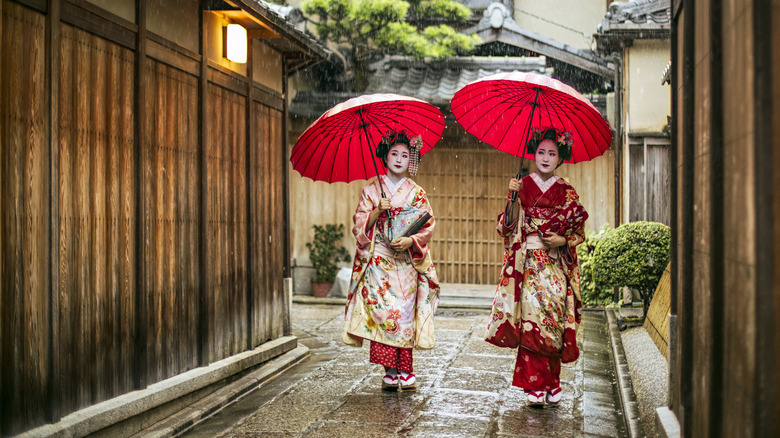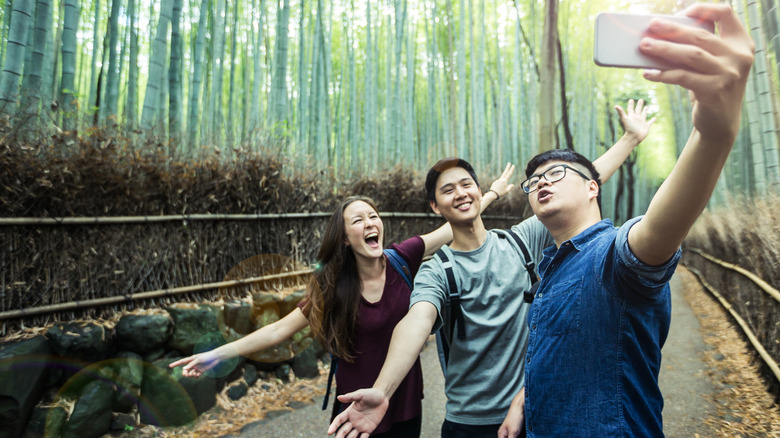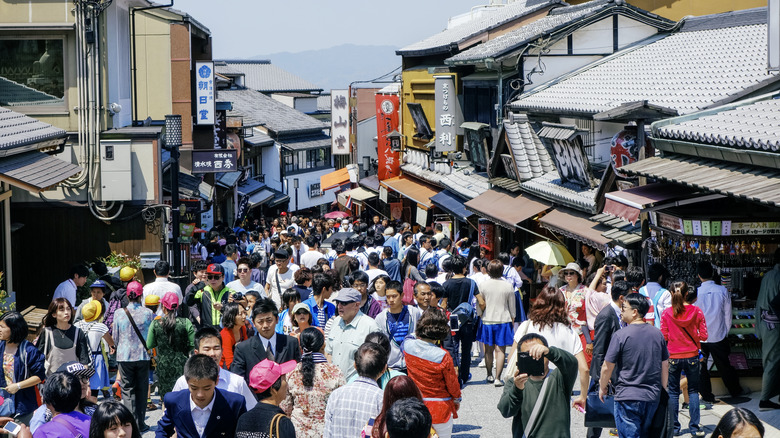Japan is a must-visit destination loved for its contemporary culture mixed with thriving traditions. To experience this unique blend of the old and the new, millions of tourists flock to Kyoto each year, Japan’s former capital. Kyoto is just a two-hour shinkansen (bullet train) ride from Tokyo but has a personality all its own, with its famous ancient temples, stunning natural scenery, and a comforting slower pace.
Unfortunately, the droves of visitors in recent years are contributing to overtourism, a problem Kyoto has struggled to manage. But that might be changing in 2024 after the city’s new mayor, Koji Matsui, vowed to crack down on the crowds and as new restrictions are put in place in the popular neighborhood of Gion.
Gion is renowned for its geisha, and tourists have been known to loiter around the area — and even scream and push other pedestrians — in an attempt to catch a glimpse of the powder-faced hostesses. Now, Kyoto is barring tourists from entering certain alleyways frequented by geisha. Isokazu Ota, a local district official, told AP News, “We are going to put up signs in April that tell tourists to stay out of our private streets.” Those who don’t obey the order will be fined 10,000 yen, or about $65.
Geisha have long been harassed by tourists

Geisha are considered an icon of Japanese culture, especially by outsiders who have only seen geisha in movies or pictures. However, it’s a common mistake to assume these working women are similar to a Disney World character, available to mingle with the tourists and snap selfies beside. This misconception has created an atmosphere where geisha are often on the receiving end of harassment, sometimes from tourists who simply aren’t familiar with the local customs.
Gion began taking measures to protect geisha in 2019 when the local government placed no-photography signs on private streets and sent messages to tourists’ phones reminding them to not photograph geisha without their permission.
At its core, Japan is a country that cherishes privacy, where people often avoid sharing their faces even on their personal social media channels. Geisha, too, tend to share these values. A geisha named Kiku told CNN, “[A]ll the attention can be bothersome at times, as geisha are only human and not objects. So we would appreciate our privacy being respected by not having our photo taken when we are walking with a guest or aren’t on the way to work.”
How to behave when visiting Kyoto

It’s important to be a considerate tourist when visiting Japan, and Kyoto’s Gion district is no exception. If you visit the neighborhood and run into a geisha, consider yourself lucky — and then be sure to remain courteous. Don’t enter private streets where guests are banned, and avoid the temptation to follow the hostess or snap photos. Instead, consider booking a private geisha show through a travel agency or tour guide (but note that the experience can be pricey!).
There are other rules and customs to be aware of when exploring Kyoto. For instance, it’s generally frowned upon to walk while eating, even if you grab food from a street food stand. Before strolling around with a stick of dango (a Japanese dumpling), look for signs forbidding walking while eating or ask the food vendor where you should enjoy your treat.
Finally, though it might seem obvious, don’t vandalize famous sites (or anything else, for that matter). In 2018, over 100 bamboo stalks in Kyoto’s Arashiyama Bamboo Forest were found to have been damaged, mostly by tourists carving their names or initials in the plants. In 2023, a teenaged tourist also made headlines after scratching his name in a temple pillar in the nearby city of Nara. The temple swiftly responded with a sign reminding visitors that they may be punished for acts of vandalism.

